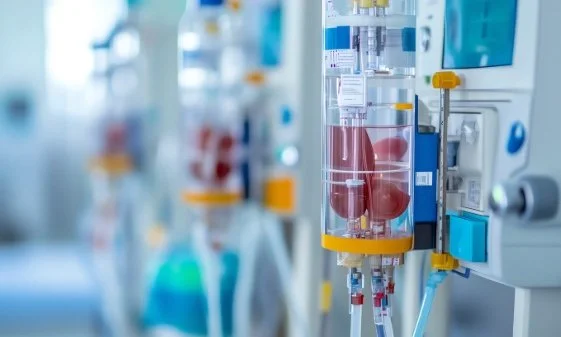India Faces Alarming Rise in Chronic Kidney Disease
138 Million Indians Living with Disease, Most in Early Stages, Says a New Report
November 8, 2025
Chronic kidney disease, or CKD, has become one of the fastest growing health threats in India, with over 138 million adults now affected, according to a major new study published in The Lancet. India ranks second only to China in the number of people living with CKD, making it one of the worst-affected countries in a global crisis that has seen total cases more than double since 1990.
The study, cited by Northeast Herald, comes from the Global Burden of Disease 2023 project, which tracked long-term kidney disease in adults across 204 countries and territories over a 33-year period. Led by researchers from the Institute for Health Metrics and Evaluation (IHME), New York University, and the University of Glasgow, the study analysed data from more than 2,200 sources, making it the most detailed global assessment of CKD to date.
Globally, nearly 800 million adults now live with CKD. In 2023, it was the ninth-leading cause of death, claiming 1.5 million lives, and the twelfth-leading cause of disability. Unlike most major illnesses, the death rate from CKD has continued to rise, climbing from 24.9 per 100,000 people in 1990 to 26.5 in 2023.
India’s contribution to this rise is significant. The country’s growing CKD burden is driven by rapid urbanisation, dietary changes and the explosion of diabetes and high blood pressure – two of the main causes of kidney damage. At the same time, access to affordable diagnosis and treatment remains patchy, especially in rural areas where screening is rare and specialised care is limited.
In South Asia as a whole, about 15.8% of adults now live with CKD. India alone accounts for nearly half the region’s cases. Most of those affected are in the early stages of the disease, offering a chance for early detection and intervention, but only if screening becomes more widely available.
Researchers say that CKD in India is both a major health problem in its own right and a serious risk factor for other deadly conditions, especially heart disease.
In 2023, nearly 12% of cardiovascular deaths worldwide were linked to poor kidney function. The damage caused by CKD often goes unrecognised until it is too late, adding pressure on already overburdened hospitals and pushing families into debt as treatment costs rise.
The study identified 14 risk factors that drive CKD. In India, the biggest contributors are diabetes, high blood pressure, obesity and poor dietary habits. Diets high in salt and low in fruit and vegetables are a growing concern. As more people adopt sedentary lifestyles and fast food becomes cheaper than fresh produce, the risk of chronic illness increases across all age groups.
CKD has received far less attention than other major diseases in India’s public health strategy. Government programmes to control diabetes and hypertension often overlook kidney health, and access to lifesaving treatments like dialysis and transplants is still limited to a small section of the population.
Dr. Theo Vos, one of the study’s senior authors, said that CKD is rising fastest in regions already struggling with weak health systems and major gaps in care. This includes India, where inequality in health access leaves large numbers of patients without diagnosis or early treatment.
Public health experts say the priority now should be on prevention. Controlling blood sugar and blood pressure with affordable medicines, improving diets and screening high-risk populations could help slow the disease. Early intervention also reduces the need for costly kidney replacement therapy, which remains out of reach for most Indian families.
Meeting the World Health Organization’s target of reducing premature deaths from non-communicable diseases by one-third before 2030 will depend in large part on tackling CKD. For this, India need to build awareness among both patients and doctors, improve routine testing and ensure that kidney health is no longer left out of the conversation.
CKD develops over time when the kidneys gradually lose their ability to filter waste and excess fluid from the blood. In early stages, it often shows no clear symptoms, which is why many people remain unaware they have it. As the disease progresses, symptoms may include fatigue, swelling in the legs or face, frequent urination, especially at night, loss of appetite and difficulty concentrating.
Regular health checkups that include blood and urine tests can detect early kidney problems. Managing blood sugar and blood pressure, staying physically active, avoiding excessive use of painkillers and drinking adequate water are important steps to prevent or slow CKD.
You have just read a News Briefing by Newsreel Asia, written to cut through the noise and present a single story for the day that matters to you. Certain briefings, based on media reports, seek to keep readers informed about events across India, others offer a perspective rooted in humanitarian concerns and some provide our own exclusive reporting. We encourage you to read the News Briefing each day. Our objective is to help you become not just an informed citizen, but an engaged and responsible one.

